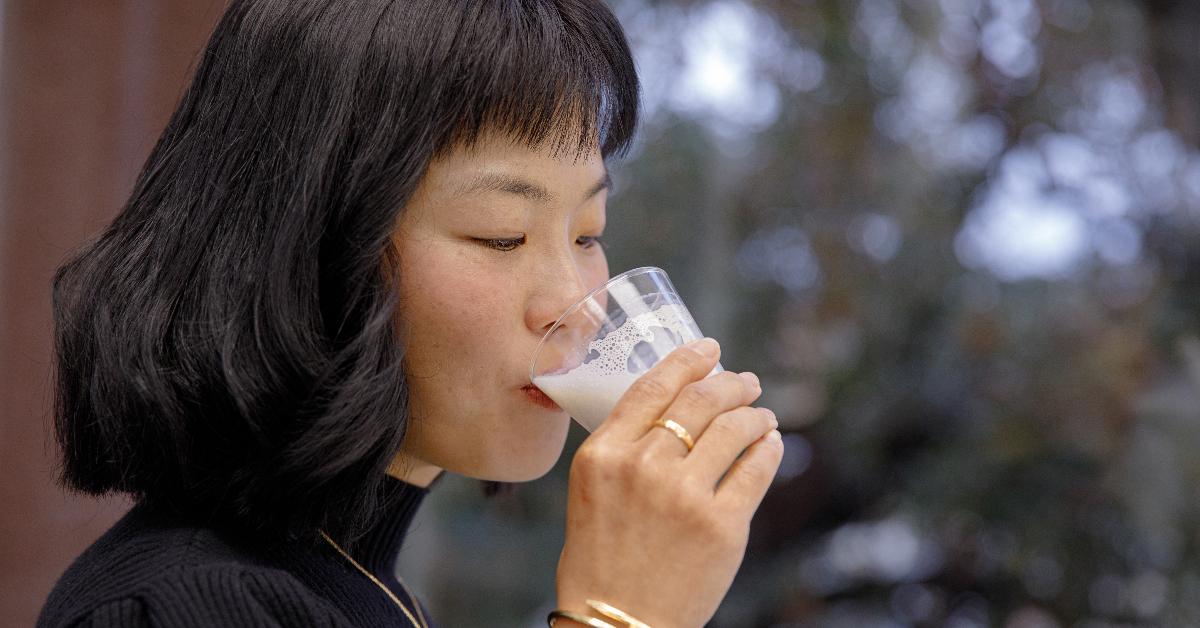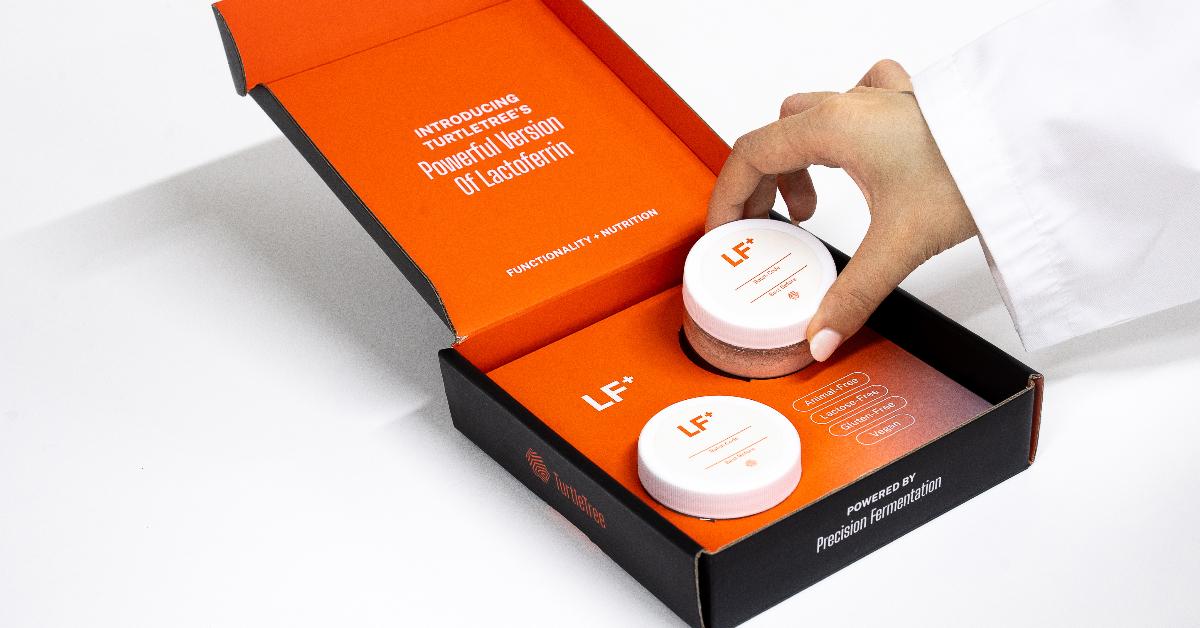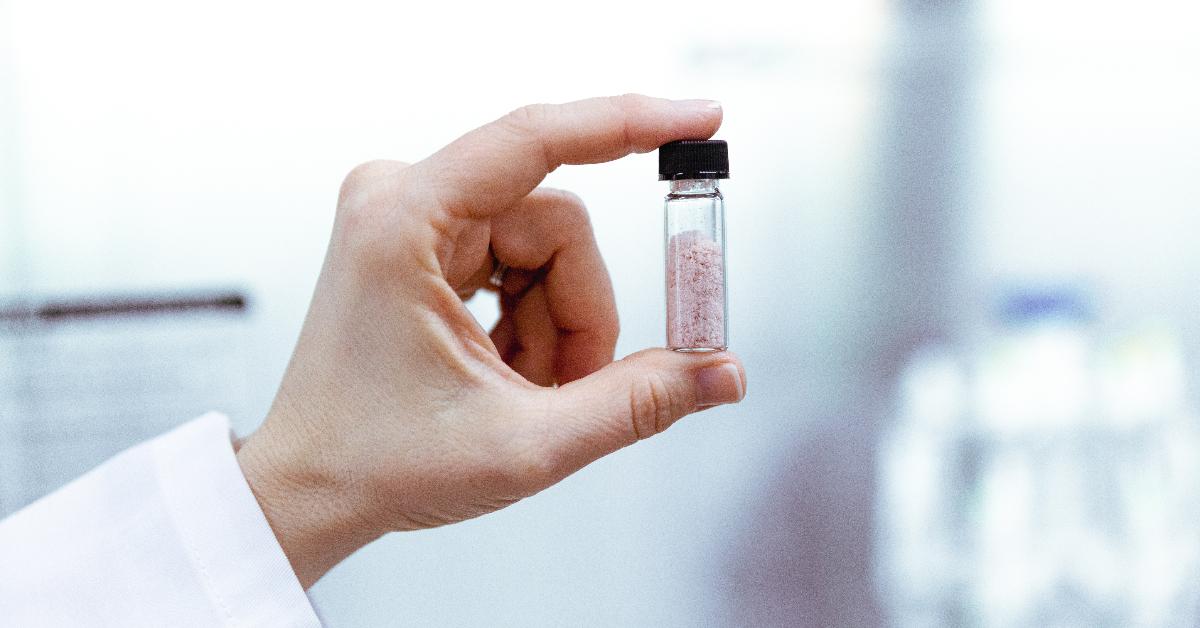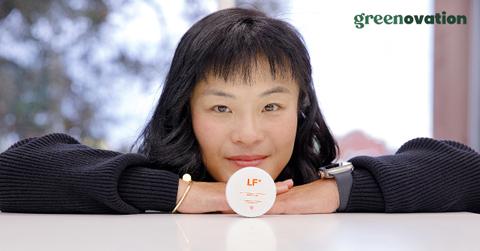In the vast realm of food, "fermentation" typically brings to mind treats like kimchi, kombucha, and sauerkraut. Biotech company TurtleTree's CEO and co-founder, Fengru Lin, wants us to direct our attention to cow's milk ... sort of. More specifically, she's leading the way in the precision fermentation dairy industry. TurtleTree has released a revolutionary product called LF+, which is described as "the world's first sustainably-produced lactoferrin made using precision fermentation technology."
Aside from the environmental destruction and animal cruelty associated with the dairy industry, cow's milk isn't exactly a superfood. While it's common knowledge that dairy is a good source of calcium, magnesium, and vitamin A, it's also associated with an increased risk of certain cancers (perchance due to growth hormones) and heart disease, skin conditions, and even hip fractures, as per the Cleveland Clinic.

Still, cow's milk does provide lactoferrin, a god-tier protein. TurtleTree set out to separate the cow from "milk's most valuable protein." The company's "pink gold" lactoferrin powder is considered animal-free. It has an official Vegan Action certification, making TurtleTree the world's first precision fermentation dairy company to procure a vegan certification. Fengru Lin exclusively tells us that the certification helps TurtleTree "provide consumers with an ingredient that meets evolving market needs and ethical standards without compromising their values."
In an exclusive e-interview with Green Matters, Fengru Lin touched on her cheesemaking origin story, the evils of the dairy industry, and the science behind the precision fermentation process.
This interview has been edited and condensed for length and clarity.

GREEN MATTERS: How did your passion for cheesemaking lead to precision fermentation dairy production?
FENGRU LIN: Cheesemaking helped me fully understand what it takes to go from cow to wheel, including all the associated sustainability, food safety, and animal welfare issues. I discovered the harsh realities of milk production and was inspired to do my part to improve this industry. TurtleTree's goal is to create more sustainable and ethical ways to offer nutritious food options, and our first product is animal-free lactoferrin made via precision fermentation. Our team is now able to make this milk protein at scale and should soon have it in the hands of consumers via plant-based milks, sports nutrition products, and more.
GM: There are over 25 different proteins in cow’s milk. So, why lactoferrin?
FL: After speaking to potential customers at global dairy companies, we learned of the milk ingredients that are most highly valued. Top of the list is lactoferrin, a valuable milk ingredient currently trading for $750 to $1,500 USD per kilogram and renowned for its significant benefits for immunity, digestion, and iron regulation. By harnessing precision fermentation — using microbes as tiny factories embedded with lactoferrin's unique recipe — we discovered that we can supplement the global shortage of this ingredient, which is currently being usurped by the infant formula market. Our process offers a more realistic and sustainable way of producing lactoferrin for the masses.

GM: Can you tell us a little about the precision fermentation process and why it's sustainable?
FL: First, we take the genetic sequence that instructs a cow cell how to make lactoferrin, and we put that into a microbe like yeast. Second, we culture the yeast, add sugars and nutrients, and through fermentation, these microbes then produce lactoferrin. Finally, when we’re done with the fermentation, we purify and dry the high-value protein into a fine powder, and then we package and distribute it to our partners. Through precision fermentation, TurtleTree is removing high methane-emitting cows from the lactoferrin supply chain. This enables us to eliminate the land and water used to feed and graze all these cows and potentially avoid up to 91 percent of their emissions.
GM: We understand that down the line TurtleTree plans on creating “cell-based milk.” What does this mean?
FL: TurtleTree will eventually deliver on its ambitious cell-based milk plan. While harnessing the use of mammary cells to create a whole milk product was TurtleTree’s original goal, we realized that there was a far shorter path to real-world impact. Specifically, using such an expensive, early-stage technology didn't make sense to bring a complex commodity to market. Instead, using a decade-old technology like precision fermentation to make milk’s most valuable protein enables us to produce this powerful ingredient now and do it sustainably.

GM: Why are innovations in precision fermentation and lab-grown products especially important today?
FL: Dairy contributes 2.7 percent of global greenhouse gas emissions, with immense water and land required to sustain the millions of dairy cows in the world. The intensity of modern production methods can also impact food quality and nutrition, depleting vital nutrients like lactoferrin, with up to 90 percent of the complex functional protein removed during pasteurization. With the global population set to reach 10 billion by 2050, sustainable solutions like precision fermentation are crucial to ensure food security for future generations.
“Greenovation” is a series from Green Matters that invites founders of companies that are not only disrupting industries, but also trying to change the planet for the better.

